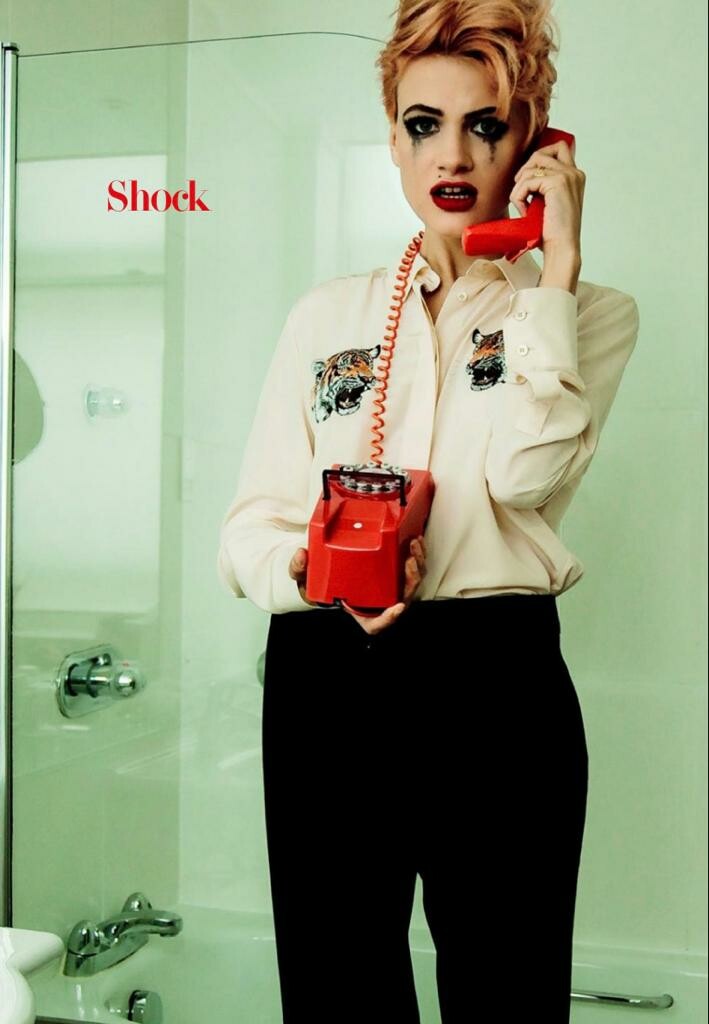Photo Credit: Taken from Voir issue 17/ Luke Walwyn
Depression is not an easy thing to face; it is overwhelming, isolating, heart-breaking, uncontrollable, unexplainable, painful, life changing. But … ‘digital’?
Currently, ‘Digital’ and ‘Depression’ are two words that are now synonymous with each other. A study undertaken by the American Psychological Association found a rapid increase in the rates of adults (aged 18-25) reporting depression, following the rise of social media and technology: a 63% increase from 2009 – 2017. Psychologists term this correlation ‘Digital Depression’. Whilst it can be comforting to feel psychologically seen and understood, the danger which is woven into this narrative is that Generation-Z and Millennials are ‘seen’ in the wrong light. To tie a mental health struggle so fiercely with a generation is to unnecessarily oversimplify and isolate an already difficult experience. The narrative must change.
The media speaks with such a loud voice that we convince ourselves that they are the words of truth and reason. We subsequently self-diagnose, statement and explain ourselves with carefully curated words from the screens of journalists reading spreadsheets. But the media industry is not the target here; the climate and consequences of it is. The relationship between us (the reader) and the media’s reporting of ‘Digital Depression’ has the power to portion blame, convincing us ‘digital natives’ that our lifestyle, particularly our interaction with social media and communication, is the reason for struggles with mental health. In turn, the validity of our struggle is lessened, and we become both the victim and the perpetrator: our battle is therefore self-inflicted, we invite the soul-destroying hurt, we are simultaneously the problem, the reason and the explanation.

This isn’t true. Mental health is not your fault. You are not alone or to blame.
The Gen-Z and Millennial generation is bold, ambitious and powerful. They have loudened their voice, they fight for their beliefs, they are open and honest and loving in a way no previous generation has mastered so fluidly. For the Gen-Z and Millennials, the world (read social media) is their stage; it is an invaluable platform, a meaningful connection, a megaphone into a crowd of like-minded people. Yet today is never as good as the old days, is it? ‘Back in the day, without the internet’, ‘we weren’t as sad at this’, ‘we were kids’, ‘we had a better, happier life’, ‘we didn’t know what depression was’ [quote, the older generation]. The correlation between ‘digital’ and ‘depression’, and the subsequent psychological interpretations, are important and informative but they overlook the role of the digital in our lives today.
By defining something as concisely as is done here, we automatically search for a solution which doesn’t exist. Having grown up within an age of rapidly growing digital connection, our existence has become intricately entwined with our online presence. Having social media is consistently expected: job applications on LinkedIn, employer background searches on Facebook, staying in touch with family and friends on Instagram; keeping up to date with the world on Twitter. The ‘Digital Depression’ articles overlook our society’s (wanted or unwanted) dependency on being online, disregarding the tangibility between ‘normality’ and a presence on the internet. Perhaps going off-grid, deleting accounts and being traceable only by letter would equal a happier healthier life similar to that in pre digitalisation, but today it wouldn’t. And this is what the media headlines neglect to acknowledge.
Social media is a path which runs through our life, our job being to reach a position where we can – mentally – walk on the right side of it. It is crucial to know that our screen time (the number of hours you spend online) is not responsible for the statistics, it is instead our interaction with it. Whilst the spreadsheets emphasis how social media exacerbates depression – think example FOMO, self-comparison, bullying, addiction, reduced self-worth – it neglects the positives within the cultural transformation. Our expanded social interaction maintains connections which can minimalise isolation and loneliness, provide an outlet from anxiety and gives a voice to combat feelings of helplessness. The media headlines overlook the lifeline which the digital has given so many young people.
Developing a healthy relationship with ourselves pre-cursors the reduction of ‘Digital Depression’. Likened by psychologists to sugar, the key to overcoming this ‘illness’ is to regulate it as you would sweets. To completely stop sugar intake, to go off grid, is not a long-term solution. Social media detoxes work wonders in providing a break and mental refresh but, if permanent, you will inevitably lack other things. Work with, not against, yourself. Work to embody a healthier perspective on social media, think about your personal habits and moderation, create the platform you want. The number of followers likes, and comments used to intoxicate our self-worth, encouraging us to judge ourselves against beautiful people under filters and photoshop. Yes, it can be fun to experiment and create new images so if it gives you pleasure then why not; if it doesn’t, move out of this mindset. Gen-Z and Millennials are learning to embrace authenticity, striving for openness and praising universality and individuality. We need to remember and grow with this; depress the toxicity of social media instead of allowing it to depress you.

In a time when we are treading water to keep afloat, reading the accusatory headlines of ‘Digital Depression’ can feel like a personal attack. In some ways, it is. Whilst we can’t deny the facts of those pieces (nor do discredit them), they do not present the multi-dimensionality which is crucial to our culture and society. If you relate to what you read, then learn from it and find new ways to help yourself and work with your mental health.
If you don’t relate, the message still stands. Regardless of definitions and statistics, what ‘Digital Depression’ ultimately talks to is the vulnerability and porousness of young people’s minds and mental health. When dismantled, this psychological term illuminates our fragile – yet powerful – everchanging interconnectivity. We cannot exist in a vacuum alien to the digital world and nor should we try to, instead we must endeavour to find ways to exist alongside this world. There is a mirror between mental health and digital media: they are both complicated, confusing, and overwhelming entities that are crucial to our wellbeing. Yet the key is not to find a new mirror when times get tough, but simply to create a reflection that we like.
Words By Hannah Emery







